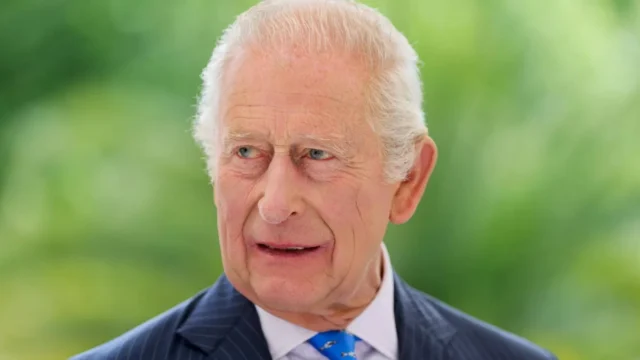On Monday, the king of Britain, Charles III, held a ceremony in honor of the twentieth anniversary of transport explosions in London in 2005, which is the most bloody attack on the British capital since the Second World War.
52 people were killed, and more than 700 people were injured when four British bombed themselves, inspired by their idea of Al -Caida, on three tunnels and buses during the morning hour of peak on July 7, 2005. These were the first attacks on suicide on European land, according to the Associated Press report on Monday.
Two weeks later, four other attackers tried to make a similar attack, but their bombs did not explode, and no one was injured.
These explosions are still engraved in the collective memory of London, and the anniversary will be celebrated by conducting a ceremony in the explosion memorial on July 7 at Hayd -Park, in addition to the Memorial Mass in the Saint -Paul Cathedral.
In the message on this occasion, the king said: “My heart thoughts and my own prayers remain with all those whose lives have forever changed on this terrible summer day.”
He added that the country can extract power from the courage of emergency services and everyone who fought with the attack, and from “many amazing stories about the courage and sympathy that came out of the darkness of that day.”
King Charles also praised the “spirit of unity that helped London, and our whole country has recovered.”
He continued: “While we are reviving the memory of those whom we have lost, let’s take advantage of this twentieth anniversary in order to resume our commitment to the creation of a society, in which people of all religions and origin can live with mutual respect and understanding, while constantly and firmly stand in front of those who seek to share us.
For his part, the British Minister of Internal Affairs, Evub Cooper, said that on July 7, 2005 he was one of the “most gloomy days” in the history of Britain.
She added: “After it passes for twenty years, extremist Islamic terrorism is still the largest threat to national security, followed by terrorism of extremist law.”
“But we are also faced with hybrid threats for our national security by hostile countries, serious organized crimes, Internet criminals and those who threaten the safety of our borders, in addition to an anxious increase in the number of people who are obsessed with extremism on the Internet,” emphasizing that the British government “will continue without disputes with these threats and these threats and these threats and these threats and confrontation. “
Meanwhile, the London Police Commissar, London Mark, called for the creation of 12 to 15 huge forces in the framework of what he called the “first serious reform” (British) police model for more than 60 years. The article, which he wrote in the newspaper The Sunday Times, said: “The current system, consisting of 43 combat forces, did not fit for at least two decades,” the British press agency (BA Media) reports on Sunday.
He added that larger forces will be able to better benefit from modern technologies and reduce management tasks and “expensive” support tasks. “The 43rd power model was developed in the 1960s, and it did not fit for at least two decades,” Rolly added. This prevents the effective confrontation of today’s threats and prevents us from reaping the fruits of technology. “
He added: “We need to reduce the amount of strength by two -thirds, and the largest and most capable regional forces support the best in modern technologies and the best use than limited financing.”
British Minister of the Interior: Islamic Extremism is the “greatest threats”
The British Minister of Internal Affairs Evat Cooper said that Islamic extremism and extreme law are still “the biggest threat” for Britain until the twentieth anniversary of the explosions on July 7. According to the British press agency (BA Media), four suicide bombers aimed at the transport network in the capital on July Seventh, killing 52 people and injuring more than 770 people on three tunnels and bus trains in London.
The attacks followed the series of attempts at the explosion, and in the next search of the suspects, the police shot an innocent man named Gene -Sharls de Menesis at the metro station and killed him.
In the article for her newspaper Sunday Mirror, Cooper recalled how the news about attacks appeared, heading for a local government conference as an assistant minister. She added: “The foreign affairs program of Breklitin has become more important than when the liba.”
And she continued: “Society throughout the country determines that hatred will not win,” she said, “work that was completed at that time and developed. And extremist Islamic terrorism remains the biggest threat, beyond which terrorism of the extremist right right









